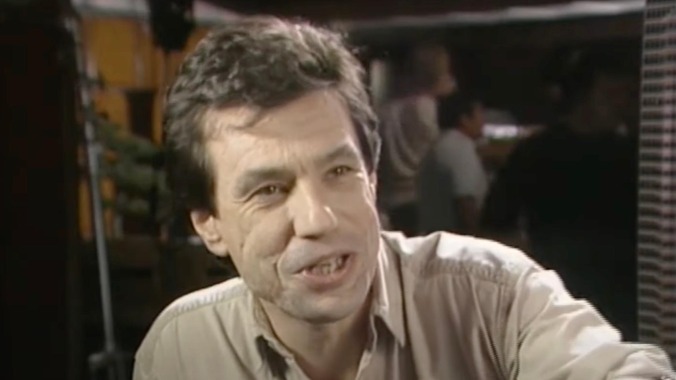Die Hard at 35: How a near-miss on the freeway inspired an action classic
Die Hard screenwriter Jeb Stuart talks to The A.V. Club about the film's enduring appeal, why Clint Eastwood said no, and whether it really is a Christmas movie

When Die Hard hit theaters 35 years ago, it was like Christmas in July. The action classic, directed by John McTiernan and starring Bruce Willis, established a new standard for popcorn blockbusters when it opened wide on July 22, 1988. Willis’ leading man status was forever cemented in his role as New York City detective John McClane, the underdog everyman pitted against thieves who take over an L.A. high-rise on one incendiary Christmas Eve.
Die Hard spawned a franchise, but the first movie still stands as a monument to Hollywood’s heyday of director-driven, star-powered attractions—and with its yuletide setting, it remains an unexpected holiday favorite. For Die Hard screenwriter Jeb Stuart, the secret of the film’s evergreen appeal is in both its craftsmanship and its heart. Take away the guns, exploding rooftops, and profane cowboy catchphrases, and Die Hard is about a husband who wants to make up with his wife. “It’s about a 30-year-old guy who should have said something to his wife before something really bad happens,” Stuart told A.V. Club in a recent phone interview. “It’s a family story.”
A novel approach to a movie adaptation
Officially an adaptation of Roderick Thorp’s 1979 noir novel Nothing Lasts Forever, Die Hard follows roughly the same plot with a few key differences. In the book, sixty-something protagonist John Leland must save his grown daughter Stephanie, an oil executive, from terrorists who seek vengeance against her employers. Spoilers: Stephanie falls to her death, and the book’s ending implies Leland also dies from his various wounds.
Die Hard was born out of Fox’s rights to Thorp’s book, which were in place before Thorp even wrote it. Stuart was an up-and-coming screenwriter with both a project at Columbia and a four-picture deal at Disney. Neither was bringing in enough income for Stuart to support his wife and two children. With a six-week period to fill with work, Stuart’s agent put him in contact with Lloyd Levin, a producer at 20th Century Fox, who hired Stuart to adapt Nothing Lasts Forever. “I would have taken the Dead Sea Scrolls if they offered it to me,” Stuart jokes.
Stuart liked Thorp’s book, but found it too grim to faithfully turn into a Hollywood movie. In the weeks he had to finish a draft, he struggled to crack the story, straining to reconcile the visceral nihilism of Thorp’s book with the demands of a summer crowd-pleaser. The effort took a toll on Stuart and his marriage. “I was burning the candle at both ends,” Stuart says. “I was working on the Columbia project from 8 [a.m.] until 6 [p.m.]. I’d come home, put my kids to bed, have dinner with my wife, and go back to Burbank at whatever hour [to write Die Hard].”
An inspiration that almost killed him
One night, Stuart got into a fight over a trivial matter with his wife, the late Anne Bryant Stuart, who supported her husband through grad school and his dream of becoming a screenwriter. Stuart knew she was “completely in the right,” but his pride still had him storm off and drive down L.A’s Ventura Freeway. “It didn’t take me five minutes to go, ‘She’s right, and I’m wrong.’”
 Keep scrolling for more great stories.
Keep scrolling for more great stories.
